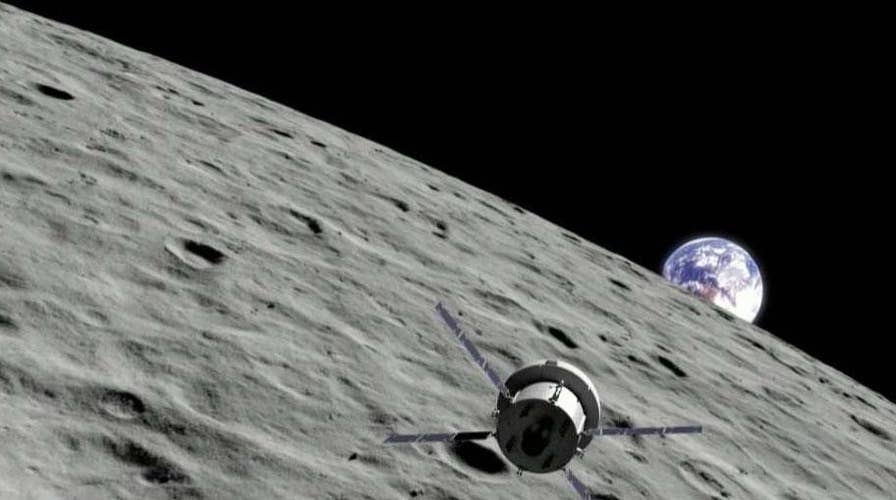Artemis program targets 2024 return to the moon with female astronauts
NASA administrator Jim Bridenstine says he wants his 11-year-old daughter to see herself in the astronauts that will be returning to the moon in 2024.
Ahead of NASA's return to the moon in 2024, the space agency is teasing an "exciting new discovery" about the celestial satellite.
According to a source familiar with the situation, the discovery, to be announced Monday at noon EST, is expected to "inform" the agency's Artemis program work.
"This new discovery contributes to NASA’s efforts to learn about the Moon in support of deep space exploration," NASA said in a statement.
NASA HAS A PLAN FOR YEARLY ARTEMIS MOON FLIGHTS THROUGH 2030. THE FIRST ONE COULD FLY IN 2021.
The announcement will be made from NASA's Stratospheric Observatory for Infrared Astronomy (SOFIA), described as "the world’s largest airborne observatory."
SOFIA is a modified Boeing 747 airplane capable of flying high in Earth's atmosphere, allowing for its 9-foot telescope to get a "clear view of the universe and objects in our solar system." It is able to observe infrared wavelengths that are capable of detecting "phenomena impossible to see with visible light," NASA added.
NASA’s Artemis program aims to land American astronauts on the moon by 2024 and establish a sustainable human presence.
In 2019, NASA revealed details of its vision for the Artemis Moon Lander that will return American astronauts to the lunar surface. Artemis will also make history by landing the first woman on the moon.
Initial mission capability for 2024 involves landing two astronauts on the moon’s South Pole. Astronauts will live and work out of the lander for six and a half days, according to NASA.
After Apollo 11 astronauts Neil Armstrong and Buzz Aldrin set foot on the moon on July 20, 1969, only 10 more men, all Americans, have walked on the lunar surface. The last NASA astronaut to set foot on the moon was Apollo 17 Mission Commander Gene Cernan, on Dec. 14, 1972.
CLICK HERE TO GET THE FOX NEWS APP
Fox News' James Rogers contributed to this story.
